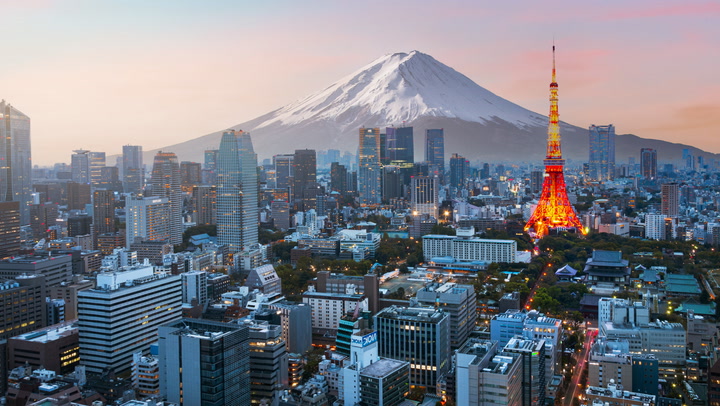This is arguably the best time to visit Tokyo for fewer crowds and more affordable prices.
Tokyo has always been a major tourist destination, particularly in late March through early April, when billowy cherry blossoms take center stage and temperate weather is the norm. During this time, you’re sure to see a large influx of visitors eager to explore the city’s budding parks, neon-lit alleyways, and quirky nightlife. With this rise in interest, however, comes higher hotel prices and crowds that require a bit of patience to navigate. If you’re looking to traverse this multifaceted metropolis at a different pace, consider shoulder season from late April through mid-June and mid-September through December. Here are just a few perks of traveling during this time.
More Accommodation Options
Tokyo is well-known for hotel prices that meet the needs of both luxury and budget-minded travelers. During high season, however, these properties become increasingly harder to secure, unless done well in advance. That’s why shoulder season is ideal for more options, oftentimes with much lower prices at sought-after hotels, too.
Take advantage by checking into the classic towering luxury retreat at Mandarin Oriental, where you just might be able to nab a seat at chef Kento Ushikubo’s coveted Tapas Molecular Bar or an eight-seat omakase pizza experience on the hotel’s 38th floor.
Or, plan a stay at the sleek Trunk Hotel in the popular neighborhood of Shibuya, just steps away from a number of popular city attractions. With just 15 rooms, it’s often booked during high season, but you may get lucky during shoulder season.
Fewer Crowds
With fewer crowds during shoulder season, you’ll have better access to some of the city’s most coveted seats and sightseeing. Stroll Tsukiji seafood market at your own pace, take in panoramic views from the observation deck at Tokyo Skytree, and visit Park Hyatt‘s walk-in-only jazz club, New York Bar, where Bill Murray once famously sat in the popular film, “Lost in Translation.” Take in the symphony of sounds with a glittering city skyline on display behind the floor-to-ceiling windows.
In September and October, temperatures are generally still agreeable enough to explore Tokyo’s incredible parks and shrines, including Shinjuku Gyoen National Garden, Meiji Jingu shrine, and Ueno Park.
Local Events
In November, Jidai Matsuri (Festival of the Ages) begins with people parading the streets in traditional costumes from different eras. Immerse yourself in the moon-viewing parties during Tsukimi, a festival celebrated in September as a way to express gratitude for a good harvest. Some of the best Tokyo locations to partake in the lunar festivities include Tokyo Tower and Sankeien Garden. Also in September, a three-day Caribbean carnival celebration takes over clubs and outdoor spaces throughout Tokyo with Soca in Japan, which brings in some of Trinidad’s biggest musicians to perform for lively crowds.
Though temperatures drop considerably in December, you’ll find plenty of ways to get into the holiday spirit with Christmas markets around the city, including at Roppongi Hills and Hibiya. At The Tokyo Edition, Toranomon, enjoy a multicourse holiday feast that includes Japanese wagyu beef, monkfish, and fruit tarts in the sapphire-colored Blue Room.
More Affordable Flights
You’ll also be able to avoid the hiked airfare that’s typical during high season in Tokyo. If you’re flying out of LAX, for example, Delta recently launched an exclusive Delta One check-in area that features a private TSA screening lane and direct access to the Delta Sky Club. In Tokyo’s Haneda Airport, the 9,000-square-foot Sky Club includes a made-to-order noodle bar, five shower rooms, and even views of Mount Fuji on a clear day.





